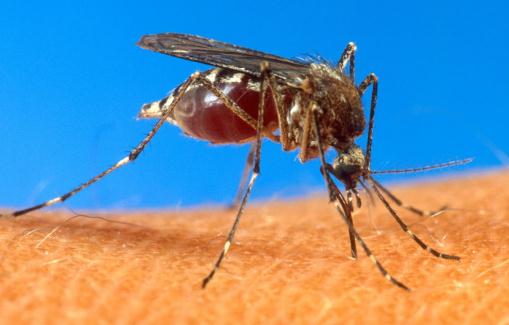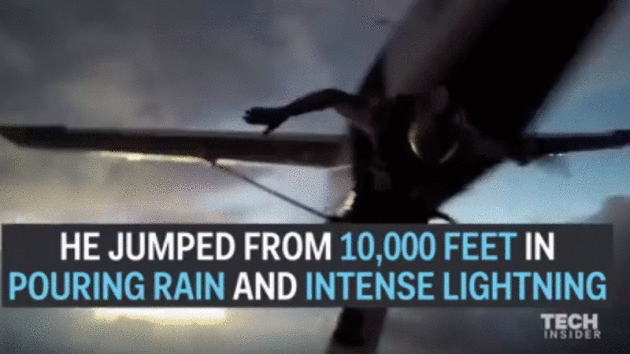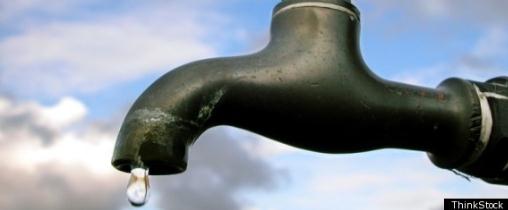82 F. average high on August 2.
83 F. high on August 2, 2015.
August 3, 1896: A violent hailstorm destroys two thirds of the crops in Swift County.
Hot Enough - In Praise of the Month of August
"In the summer the days were long, stretching into each other. Out of school, everything was on pause and yet happening at the same time, this collection of weeks when anything was possible" wrote Sarah Dessen.
"In the summer the days were long, stretching into each other. Out of school, everything was on pause and yet happening at the same time, this collection of weeks when anything was possible" wrote Sarah Dessen.
Forgive
me while I point my remote control at the sky and put the seasons on
pause. Every month has its own unique challenges and benefits, but after
shivering half the year there's a warm spot in my heart for August.
Days
are still warm to hot but nights cool off, however slightly. Fewer
storms clutter Doppler - the odds of ruined outdoor plans less than in
June, when warmth is new and often toxic. The kids are heading back to
school soon, baseball will get nudged out by football in the coming
weeks leading up the culinary crescendo of The Minnesota State Fair.
Time to start fasting.
We may hit 90F today, and T-storms will prowl the state tomorrow. But a fresh swipe of Canadian air drops temperatures and humidity levels in time for a beautiful stretch of weather Friday into Sunday with temperatures right where they should be. Precious little to complain about, for now.
Shot at 90F This Afternoon.
Models suggest upper 80s to near 90F this afternoon with plenty of sun;
dew points in the 70s will make it feel like one big, bad sauna when
you step out the door. But by Friday models are in good agreement that
highs will be near 10F cooler. Source: Aeris Enterprise.

Next Thunder Threat: Thursday.
4km NAM model output shows a dry sky today; the next wave of slightly
cooler, drier air kicking up a line of T-storms late Wednesday night
into Thursday. Source: AerisWeather.
Half Inch Rains Thursday?
With convection amounts are always fickle: an inch in one town, while 5
miles down the road barely a drop of rain falls. NOAA models are
converging on some half inch rainfall amounts Thursday.
Hurricane Drought Hits a New Record. No hurricanes in the Gulf of Mexico for nearly 3 years? Scientific American explains: "Saturday
was a quiet day across the Gulf of Mexico, but not one without note,
because a strange record was set: It has been 1,048 days since a
hurricane developed in or entered the Gulf. That is the longest streak
in the past 130 years, since formal record-keeping began in 1886. The
Atlantic hurricane season starts in June and lasts through the end of
November. But the last storm in the Gulf was Hurricane Ingrid, which
made landfall in northeastern Mexico in September 2013. "You have to
have conditions just right for a hurricane to form, and the conditions
haven't been ideal in the Gulf of Mexico in the last two years," says
Robbie Berg, a hurricane specialist at the National Hurricane Center..."

Photo credit: "Brad Hopkins of the National Weather Service office in Grand Forks considers storm motion on his monitors." W. Scott Olsen / Special to The Forum
Rising Sea Levels Could Cost U.S. Homeowners Close to $1 Trillion. Here's the intro to a story at Bloomberg: "When talking about housing, “underwater” usually means you owe more on a mortgage than the home is actually worth. If climate change continues apace, that term could take on a much more literal meaning. Rising sea levels could soak homeowners for $882 billion, according to a new report from real estate website Zillow. The research takes its initial cue from the journal Nature, which in March found sea levels could rise more than 6 feet by the end of the century. In that scenario, Florida could lose close to 1 million homes, or 13 percent of the state’s current stock..."
Planning for Disaster. Jacobin Magazine has an interesting post focused on the fairest, most equitable way of paying for the treadmill of disasters, current and future. Here's a clip: "...But when its eventual effects come to batter our door they will arrive at an exact address: floods and heat waves are intensely local disasters, and their history tells us that we are very much not in it together. Anywhere they strike the poorest residents are often hurt the most, lacking both the resources to rebuild and the protections that accrue to richer areas. If billions are being committed to fighting the effects of climate change, we should rightly be asking where they’re going, and who benefits. And we should ask now because the ball is already moving on local adaptation projects..."
Photo credit: "A home after Hurricane Sandy in Staten Island, NY in 2012." John de Guzmán / Flickr.
Evacuate or Stay?
Technology is lulling us into a false sense of security when it comes
to hurricanes. "Hey, I can see them coming satellite and radar - if it
looks bad we can head inland at the last minute." Maybe not. Here's an
excerpt of an excellent article at Medium: "...In
all disasters, knowing when, where, and how to escape is key, which
brings us to the hurricane problem. Hurricanes are survivable events.
They don’t strike out of nowhere. We have a battalion of satellites,
buoys, and airplanes to track their every move from their infancy over
the sea to their kamikaze-like demise along our coastlines. Forecasters
man 24-hour weather offices that, in most cases, give days of warning of
an impending storm. Yet some 2,000 people have died, either directly or
indirectly, from hurricanes in modern, 21st century-America..."
Photo credit: "Millions evacuate the Greater Houston metro area ahead of Hurricane Rita in 2005." Source: Public Domain
Photo credit: "Last year, California’s cities were required to cut their water usage by up to 35%." Photograph: Lucy Nicholson/Reuters.
Image credit: inside4tech.com.
Image credit: Shutterstock.

TODAY: Sunny, sticky and hot. Winds: SE 5-10. High: near 90
WEDNESDAY NIGHT: Partly cloudy and humid. Low: 74
THURSDAY: Muggy with a few T-storms, some heavy. Winds: SW 8-13. High: 87
FRIDAY: Generous sunshine, less humid. Winds: NW 8-13. Wake-up: 64. High: 81
SATURDAY: Sunny, potentially spectacular. Winds: NW 5-10. Wake-up: 62. High: 82
SUNDAY: Blue sky, another fine summer day. Winds: E 5-10. Wake-up: 63. High: 83
MONDAY: Partly sunny, lukewarm breeze. Winds: SE 5-10. Wake-up: 65. High: 84
TUESDAY: More clouds, risk of a T-storm. Winds: E 8-13. Wake-up: 66. High: 83
Climate Stories...
Photo credit: "Workers gather by street damage after Saturday night's flooding in Ellicott City, Maryland on, Sunday, July 31, 2016." Image: Kevin Rector/The Baltimore Sun via AP.
Photo credit: "Reindeer in eastern Siberia." Photographer: Andrey Rudakov/Bloomberg.
Photo credit: 'I was informed about the death of the boy in our hospital. There are no words to express my condition. I feel sorry, I pass my condolences to his parents'. Picture: Press Service of Yamalo-Nenetsk Governor's Office.
Illustration credit: Sam Dodge for Bloomberg.

Climate Change Divide Burst to Forefront in Presidential Campaign. Here's an excerpt of a New York Times story: "...Mrs. Clinton’s opponent in the November election, Donald J. Trump,
has gone further than any other Republican presidential nominee in
opposing climate change policy. He often mocks the established science
of human-caused climate change and dismisses it as a hoax. The
Republican platform calls climate change policy “the triumph of
extremism over common sense.” The divide between the two parties over
the issue is the widest it has been in the decades since it emerged as a
public policy matter. That is all the more remarkable given that during
the 2008 election, the Democratic and Republican positions on climate
change were almost identical..."

Looking, Quickly, For The Fingerprints of Climate Change. Here's an excerpt from a fascinating New York Times article: "...David W. Titley, a professor of meteorology at Pennsylvania State University who was chairman of a National Academies committee
that looked at developments in the field of climate-change attribution,
said that at this point studies of heat waves and other
extreme-temperature events appeared to produce the most reliable
assessments. Studies of extreme rainfall are considered less reliable in
finding links to climate change, and studies of events like wildfires
and severe thunderstorms even less reliable. Still, Dr. Titley said,
such studies are worth doing, as long as certain conditions are met..."
Image montage: Environment America.
The Middle East is Baking. An article at The Economist argues that climate change, even more than perpetual war, is making the Middle East increasingly uninhabitable: "...The
UN’s Environmental Agency (UNEA) released a report in May calculating
that the harsh climate claims 230,000 lives annually in West Asia (the
Arabian Peninsula and the fertile crescent), making it a greater killer
than war. By somewhere between 2070 and 2100, predicts Dr Elfatih
Eltahir, professor of climate at Massachusetts Institute of Technology,
the temperature in much of the Gulf could have reached levels beyond
which any exposure for more than six hours would be intolerable even for
the fittest of humans. Current highs might seem like a normal summer
day. Mecca’s outdoor pilgrimage could become hazardous. “We’re seeing
just the tip of the iceberg,” he adds. “Extreme temperatures will be
much worse in the future...” (Photo credit: EPA).

Climate Threat to our Water Supplies. Here's an excerpt of an Op-Ed at The Milwaukee Journal Sentinel: "...What
can we do? Climate change has been inadequately addressed in both
management and policies, and there are gaps in knowledge. The major
challenge in water governance is to align water use with demand at
levels that protect the environment and to support and enforce effective
legislation. People, who should pay for water, pay very little. Yet,
the poorest in developing countries can pay up to 40% of their income
for this basic necessity. Groundwater extraction must be regulated, and
polluters should pay...."
No comments:
Post a Comment